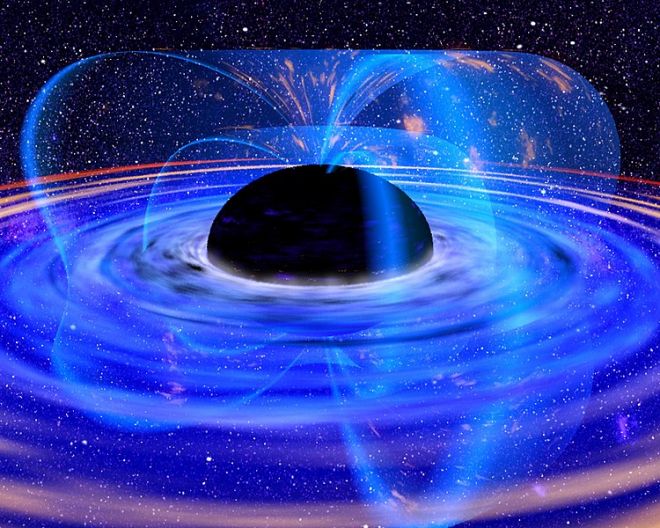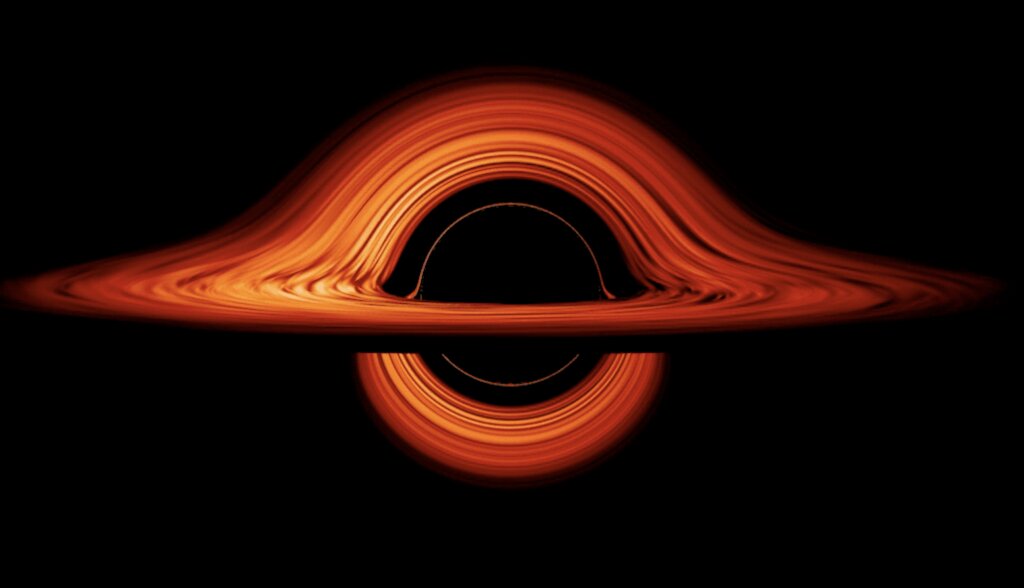Stephen Hawking elaborated in 1974 theoretical arguments about black holes that contradict the theory of general relativity of Albert Einstein. These ideas suggest the existence of something called “Hawking radiation”, which is still controversial today, since Einstein’s proposals have proven to be correct on many occasions from space observations. But that may be about to change thanks to a new detection of gravitational waves.
When two neutron stars collided and created a powerful earthquake in the universe, their gravitational waves traveled through space until scientists were able to detect them on Earth in 2017. This apparently validated the general theory of relativity. But now, examining the recordings of these waves, a pair of physicists believe that they have found evidence that a black hole has appeared there that would actually violate Einstein’s model.
Einsten vs Hawking

In general relativity, black holes are infinitely compacted singularities, surrounded by horizons of smooth events through which no light, energy or matter can escape. Simple and confirmed with all the data that astronomers have managed to collect from black holes so far.
But Hawking said in his articles that the edges of black holes are not that smooth. He established the hypothesis of quantum mechanics that allows Hawking radiation to escape. In short, particles and antiparticles form in pairs for the briefest of moments, from the vacuum of space. They then quickly disintegrate with each other. When this occurs at the limit of the event horizon, there is a likelihood that one member of the pair will form inside, and the other outside, that is, one of the pair’s components could escape the black hole.
As a result, the black hole emits radiation, formed by particles that escape the event horizon, which causes the black hole to lose mass. In the years following this theory, several alternative models emerged where Einstein’s smooth and perfect event horizons would be replaced by more fragile and confusing membranes, in an attempt to validate Hawking’s idea.
More recently, some physicists have predicted that, in the case of newly formed black holes, this cloudiness would be intense enough to reflect gravitational waves, producing a kind of echo.
Echoes and uncertainties

After detecting gravitational waves generated by the collision of neutron stars located in the elliptical galaxy NGC 4993, 130 million light years from Earth, two physicists argue that they found this echo. According to them, a black hole formed when the neutron stars merged, and now it is emitting this signal as if it were an echoing bell and, in a way, “running over” Einsteinian black hole physics.
There is still no certainty about this detection, but if the echo is real, it must be the result of the quantum “confusion” of a black hole, according to the study’s co-author, Niayesh Afshordi, a physicist at the University of Waterloo in Canada. He explains that “in Einstein’s theory of relativity, matter can orbit around black holes at great distances, but it must fall into the black hole near the event horizon.” Therefore, near the black hole, there should be no “loose” material to echo gravitational waves. Even black holes that are surrounded by material discs must have an empty zone around their event horizons, he said.
In contrast, the “time delay” that the two researchers observed in the echoes “can only be explained if some quantum structure is outside the event horizon” of the black hole. But it is important to note that the data from existing gravitational wave detectors is difficult to interpret properly and can result in false positives, which is why there are still doubts.
The study divides the opinion of other scientists. While some found the work compelling, others remain skeptical. Even though the echo is real, researchers still do not know exactly what type of astrophysical object produced the phenomenon; that is, there is still no concrete evidence that the result of the fusion of the stars was really a black hole, or some other short-lived object, such as a hypermassive neutron star.
Regardless of what this data means, it is certainly worth exploring further, and the scientific community agrees. If Hawking’s theory is proven, it could be the beginning of a new era for astrophysics.
Source: Live Science